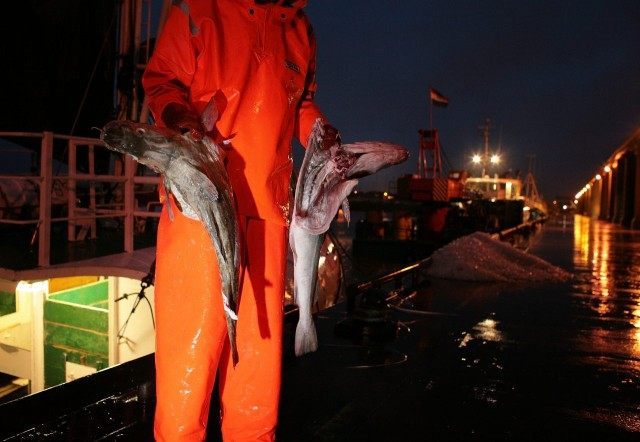The Irish government has been aware that migrant workers have been trafficked into its fishing fleet since 2008, but plans to tackle the problem were shelved years ago, it has emerged. A recent investigation revealed widespread allegations of an endemic problem with undocumented African and Asian workers, some of whom are thought to have been trafficked into the country.
Following the investigation by The Guardian, the Irish government held emergency cabinet discussions and set up a taskforce to deal with the issue. But an FOI inquiry by the paper has revealed that the government was first made aware of the problem as long ago as 2008, when officials tasked with investigating illegal employment and the flouting of immigration laws raised the issue with the previous administration.
By 2010, plans to tackle the trafficking of fishermen from outside of Europe fell apart amid squabbles over which department was responsible for their implementation. They remained shelved until the recent investigation brought the issue once again to light.
The taskforce has now issued a report, detailing plans to allow boat owners and illegal foreign fishermen to apply for a bespoke permit, allowing them to remain in the job. But it has been criticised for kicking the problem of human trafficking in the fleet into the long grass, committing only to address the problem following Parliamentary elections next February.
The report also discovered that Irish boat owners have been misrepresenting their reliance on foreign born workers in the fleet. According to the logbooks submitted by trawler owners to the authorities in the first half of 2015, Irish nationals made up 62 percent of boat crews, while nine percent were recorded as coming from outside the European Economic Area (EEA) and 11 percent of unknown nationality.
However, official inspections revealed that the true figures were 42 percent coming from outside the EEA, while just 32 percent were Irish.
The Irish fishing industry has welcomed the taskforce’s permit scheme, which it described as a “win-win” for boat owners and migrants. Permits will be issued on a 12 month basis for foreign workers, provided that boat owners produce a contract of employment certified by a solicitor, take out health insurance for the workers and pay repatriation costs. They will also have to pay the workers minimum wage, follow rules for rest periods at sea, pay taxes on the wages, and offer safety training. Th
Francis O’Donnell, chief executive of the Irish Fish Producers’ Organisation (IFPO) said: “People can now stop looking over their shoulders and get on with their respective businesses.
“The agencies involved in the taskforce acknowledged from the outset that a pragmatic approach was required to resolve this issue, and in particular credit should be given to Minister Coveney [minister for agriculture, food and the marine] who steered this sensitive issue to a satisfactory conclusion in such a short timescale.”
However, he added that he hoped the cap of 500 permits would be enough – the IFPO had previously argued in favour of issuing twice as many.
Migrants rights groups, however, have not been as welcoming to the scheme. They argue that it will leave migrant workers vulnerable, and will be largely ignored. “We welcome the swift publication of the report, however, the fact that this scheme does little to address or provide an effective remedy for those who have been exploited in the industry is a monumental failure,” said Fiona Finn, chief executive of NASC, the Cork-based migrant support organisation.
The International Transport Federation (ITF) has also warned that the scheme is unlikely to be taken up in meaningful numbers, thanks to the costs the permit imposes on boat owners. They also warned that a lack of clear independent enforcement would mean “business as usual.”

COMMENTS
Please let us know if you're having issues with commenting.